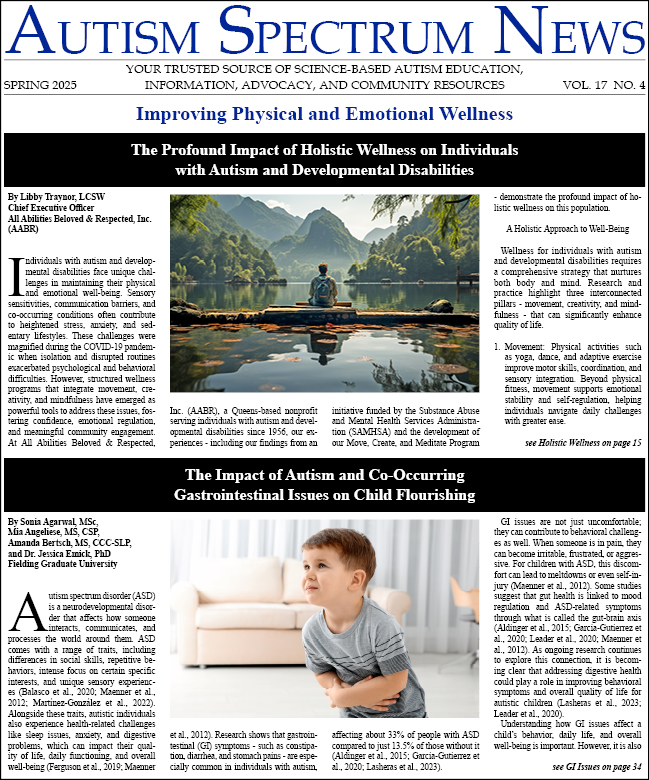-
The Ever Changing Landscape of Higher Education: An Opportunity for Students on the Spectrum
Changes in the college-aged population in the United States are among the evolving opportunities for higher functioning individuals on the autism spectrum. According to the U.S. Census, from 2015-2065 we will see about a 2% drop in the percentage of 18-24 year olds. Two percent sounds like a small...
-
Tips on Advocating for Your Child’s Education
Your child has just received an ASD diagnosis. Now what? In addition to all your other roles, you are now your child’s Education Advocate. Because of the wide spectrum of what autism can look like, a diagnosis doesn’t always happen during the early years. You could get there early when your...
-
Using Evidence-Based Practices to Help Children with Autism Spectrum Disorders Improve Their Writing Skills
The use of evidence-based practices (EBPs) for children with autism spectrum disorders (ASD) has become an important topic. The field of ASD is rapidly growing and changing, and an increased number of people diagnosed with ASD has led to the demand to find effective interventions and treatments...
-
Accommodating Executive Function Deficits is Important for School Success
Individuals on the spectrum often need special modifications at school. Because everyone is unique, all teachers should have a written document explaining a little about how the student learns best and outlining agreed upon adaptations. There are many lists of possible accommodations for students...
-
Addressing Behavior in the School Setting for Students with Autism Spectrum Disorder
Problem and interfering behaviors are among the most challenging issues faced by school districts in their efforts to appropriately educate students with Autism Spectrum Disorder (ASD). These behaviors may be considered inappropriate, reduce instructional time, reduce the quality of instruction,...
-
Beyond Academics: The Importance of Executive Functioning Skill Development
Children diagnosed with ASD are known to present with a range of executive functioning needs. While educators and special education teams work to implement accommodations, modifications and supports to provide students with ASD what they need to access their education and surrounding environment,...
-
Opinion Piece: Standardized Testing in Schools Inadequately Accommodates Special Education
No Child Left Behind (NCLB) covers many federal education programs. The act, in 2001, was put forth to strengthen America’s educational system by requiring States to implement accountability systems covering all schools and all students. Although NCLB covers various education programs, the...
-
Positive Behavioral Interventions and Supports: An Effective Approach for Schools to Prevent and Manage Challenging Behaviors
Positive Behavioral Interventions and Supports (PBIS) was developed in the 1980s as a data based behavioral intervention for students with behavioral disorders (BD). Positive Behavioral Interventions and Supports (PBIS) is an evidence-based approach which incorporates behavioral and academics...
-
Challenging Behavior at School: Using a Functional Behavior Assessment and Behavior Intervention Plan
When addressing behavior problems, a careful assessment provides the foundation for effective and efficient intervention. Consider the following scenario: After struggling with headaches for nearly a week, you visit a doctor. Following a brief discussion, the doctor suggests brain surgery. While...
-
Naturalistic Intervention in Classrooms: A Look at Classroom Pivotal Response Teaching
Classroom Pivotal Response Teaching, or CPRT, is a naturalistic behavioral intervention designed for classrooms serving students with autism spectrum disorder (ASD). CPRT was created by modifying an evidence-based practice called Pivotal Response Training (PRT), which strives to improve learning in...





